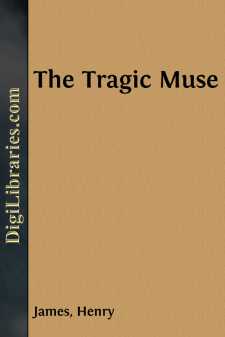Categories
- Antiques & Collectibles 13
- Architecture 36
- Art 48
- Bibles 22
- Biography & Autobiography 813
- Body, Mind & Spirit 142
- Business & Economics 28
- Children's Books 17
- Children's Fiction 14
- Computers 4
- Cooking 94
- Crafts & Hobbies 4
- Drama 346
- Education 46
- Family & Relationships 57
- Fiction 11829
- Games 19
- Gardening 17
- Health & Fitness 34
- History 1377
- House & Home 1
- Humor 147
- Juvenile Fiction 1873
- Juvenile Nonfiction 202
- Language Arts & Disciplines 88
- Law 16
- Literary Collections 686
- Literary Criticism 179
- Mathematics 13
- Medical 41
- Music 40
- Nature 179
- Non-Classifiable 1768
- Performing Arts 7
- Periodicals 1453
- Philosophy 64
- Photography 2
- Poetry 896
- Political Science 203
- Psychology 42
- Reference 154
- Religion 513
- Science 126
- Self-Help 84
- Social Science 81
- Sports & Recreation 34
- Study Aids 3
- Technology & Engineering 59
- Transportation 23
- Travel 463
- True Crime 29
The Europeans
by: Henry James
Description:
Excerpt
CHAPTER I
A narrow grave-yard in the heart of a bustling, indifferent city, seen from the windows of a gloomy-looking inn, is at no time an object of enlivening suggestion; and the spectacle is not at its best when the mouldy tombstones and funereal umbrage have received the ineffectual refreshment of a dull, moist snow-fall. If, while the air is thickened by this frosty drizzle, the calendar should happen to indicate that the blessed vernal season is already six weeks old, it will be admitted that no depressing influence is absent from the scene. This fact was keenly felt on a certain 12th of May, upwards of thirty years since, by a lady who stood looking out of one of the windows of the best hotel in the ancient city of Boston. She had stood there for half an hour—stood there, that is, at intervals; for from time to time she turned back into the room and measured its length with a restless step. In the chimney-place was a red-hot fire which emitted a small blue flame; and in front of the fire, at a table, sat a young man who was busily plying a pencil. He had a number of sheets of paper cut into small equal squares, and he was apparently covering them with pictorial designs—strange-looking figures. He worked rapidly and attentively, sometimes threw back his head and held out his drawing at arm's-length, and kept up a soft, gay-sounding humming and whistling. The lady brushed past him in her walk; her much-trimmed skirts were voluminous. She never dropped her eyes upon his work; she only turned them, occasionally, as she passed, to a mirror suspended above the toilet-table on the other side of the room. Here she paused a moment, gave a pinch to her waist with her two hands, or raised these members—they were very plump and pretty—to the multifold braids of her hair, with a movement half caressing, half corrective. An attentive observer might have fancied that during these periods of desultory self-inspection her face forgot its melancholy; but as soon as she neared the window again it began to proclaim that she was a very ill-pleased woman. And indeed, in what met her eyes there was little to be pleased with. The window-panes were battered by the sleet; the head-stones in the grave-yard beneath seemed to be holding themselves askance to keep it out of their faces. A tall iron railing protected them from the street, and on the other side of the railing an assemblage of Bostonians were trampling about in the liquid snow. Many of them were looking up and down; they appeared to be waiting for something. From time to time a strange vehicle drew near to the place where they stood,—such a vehicle as the lady at the window, in spite of a considerable acquaintance with human inventions, had never seen before: a huge, low omnibus, painted in brilliant colors, and decorated apparently with jangling bells, attached to a species of groove in the pavement, through which it was dragged, with a great deal of rumbling, bouncing and scratching, by a couple of remarkably small horses....












